Atrial flutter is a common heart rhythm problem that can cause palpitations and fatigue. Understanding atrial flutter helps in diagnosis and treatment.
What are the main causes of atrial flutter?
- Atrial flutter often develops due to underlying heart disease, including coronary artery disease, heart valve disorders, or long-standing hypertension.
- Excessive alcohol consumption, stimulant use, and certain medications may disrupt heart rhythm, significantly increasing the risk of atrial flutter episodes.
- Previous heart surgery or chronic lung disease can alter the electrical pathways of the heart, contributing to the onset of atrial flutter.
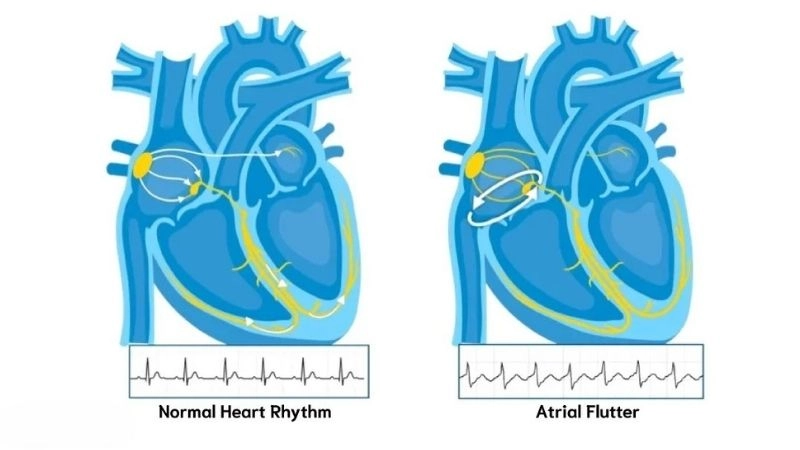
Atrial flutter symptoms include palpitations fatigue and dizziness
>>> Discover more: Giant Cell Arteritis causes symptoms and treatments
Key symptoms of atrial flutter to watch for
- Patients often experience rapid or irregular heartbeats, sometimes accompanied by palpitations, dizziness, or shortness of breath during physical activity or at rest.
- Fatigue and reduced exercise tolerance are common, as the inefficient heart rhythm limits blood flow and oxygen delivery throughout the body.
- Chest discomfort or fainting episodes may occur, signaling potentially serious complications requiring urgent medical evaluation.
How can you prevent atrial flutter effectively?
- Maintaining healthy blood pressure and cholesterol levels through a balanced diet, regular exercise, and medical guidance reduces atrial flutter risk significantly.
- Avoiding excessive alcohol, caffeine, and stimulants supports a stable heart rhythm and minimizes unnecessary cardiac strain.
- Regular medical check-ups and early treatment of underlying conditions such as hypertension or diabetes play a crucial role in preventing atrial flutter.
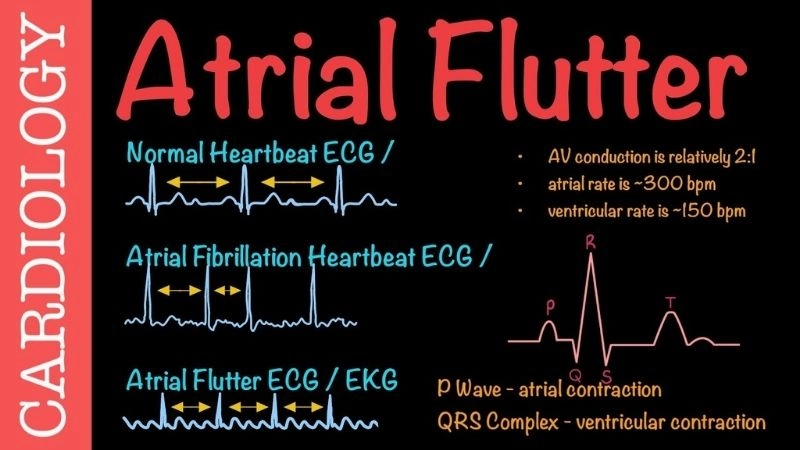
Atrial flutter treatment focuses on restoring steady rhythm
>>> Discover more: Takayasu's Arteritis signs causes and prevention methods
Images visual examples of atrial flutter
Atrial flutter is a type of arrhythmia where the heart's upper chambers (atria) beat rapidly and irregularly, leading to reduced blood flow efficiency and potential complications.
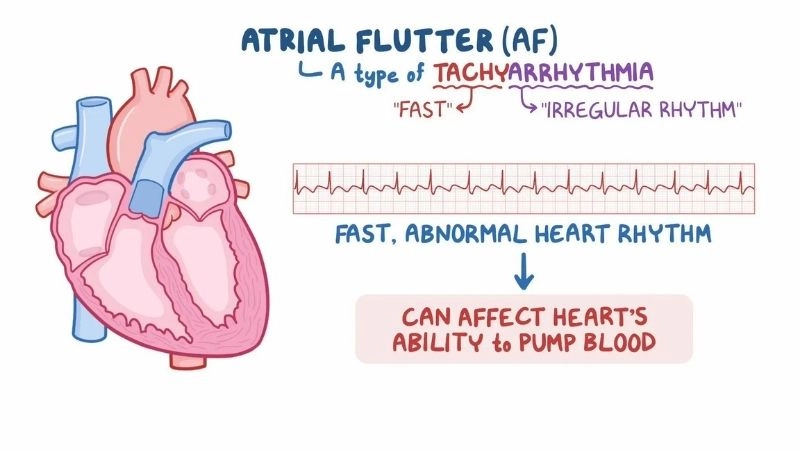
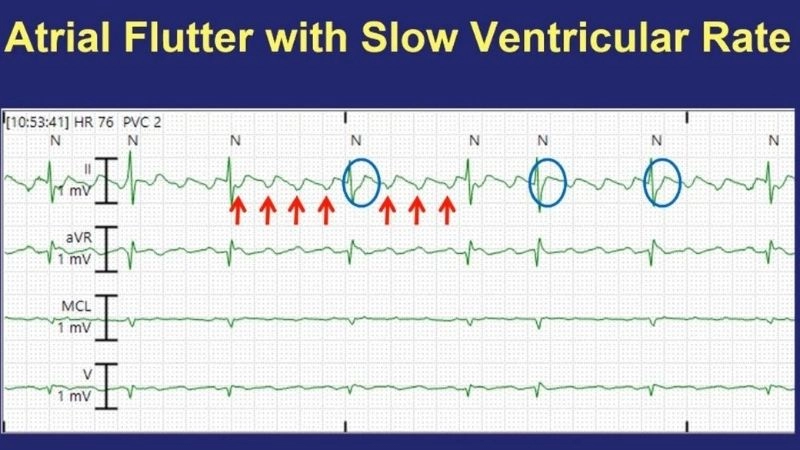
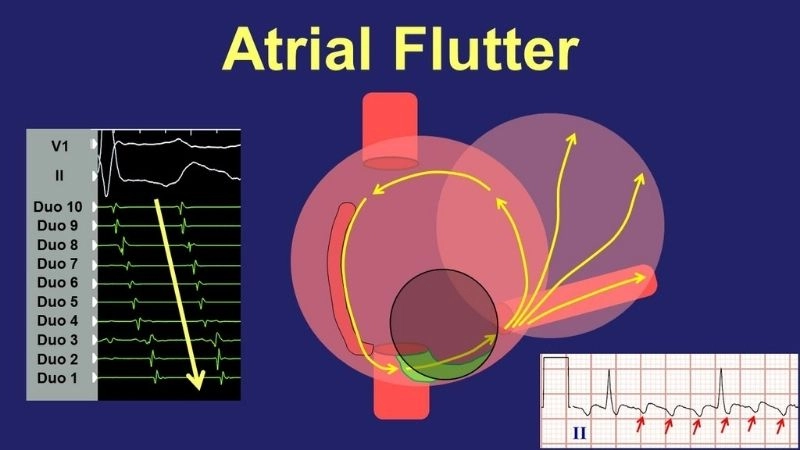
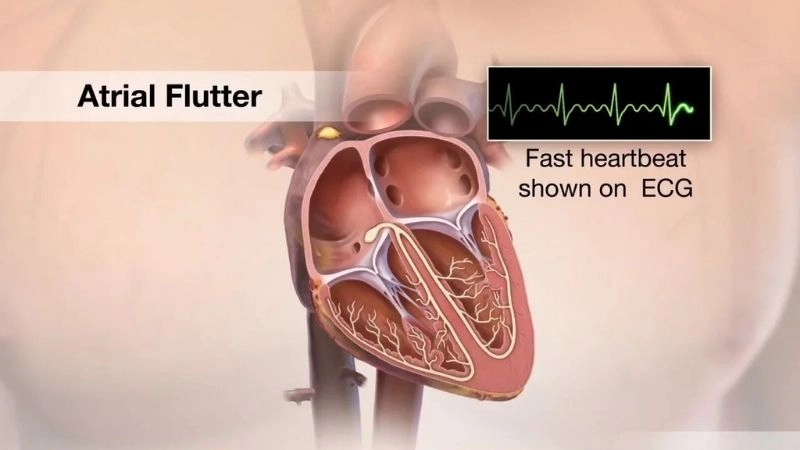
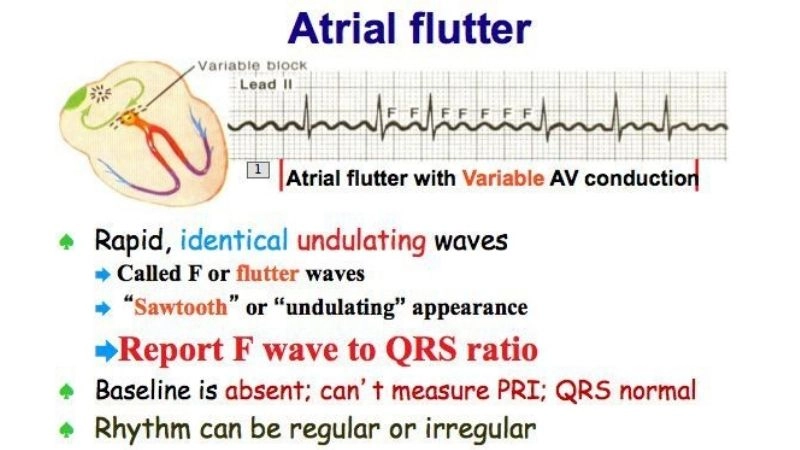
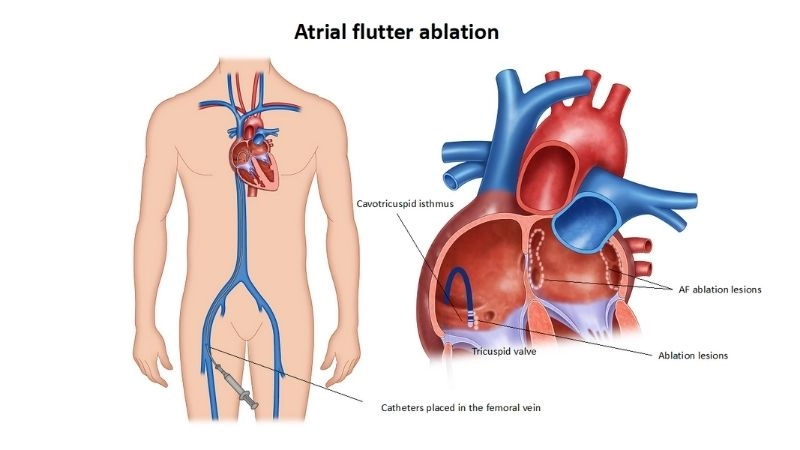
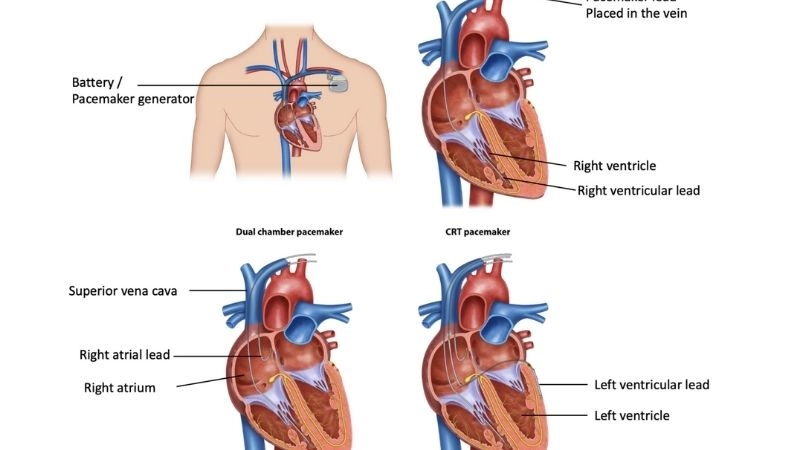
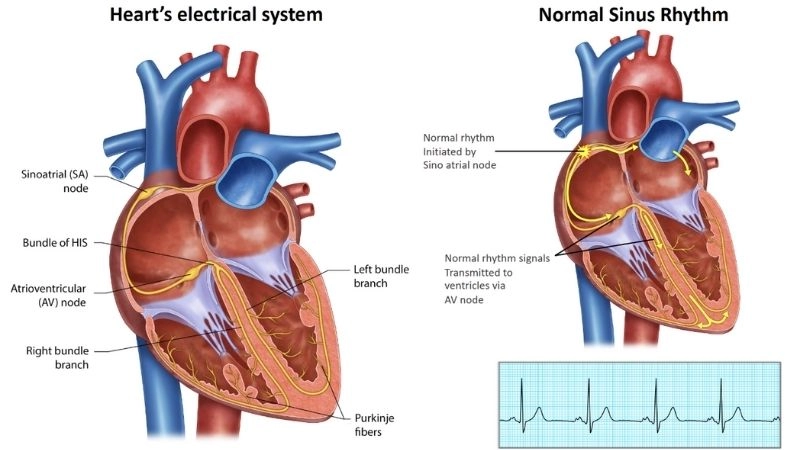
>>> Understand more about: Atrial fibrillation symptoms causes and treatment plans
Atrial flutter requires timely diagnosis and proper treatment to reduce risks. Learning about atrial flutter helps improve heart health and quality of life.





